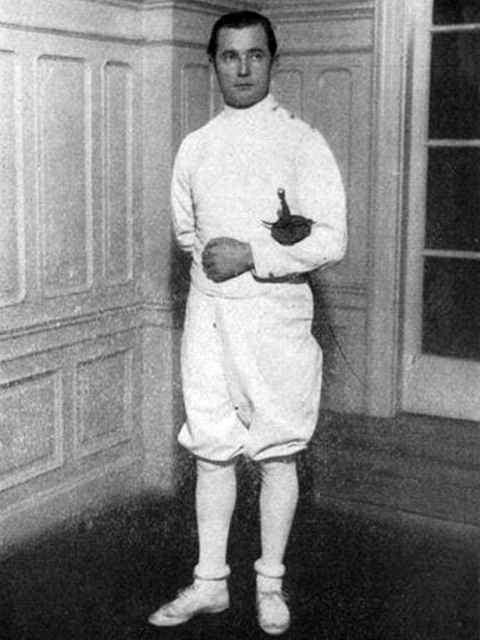Whilst affiliated with the Honvéd Tiszti Vívó Club, Ottó Hátszeghy was a member of the Hungarian national team competing in épée and foil between 1928 and 1937. He competed at the Amsterdam Olympics in 1928 and the Berlin Games in 1936. At the European Championships he was second in 1931 and 1933 and third in 1929 with the Hungarian épée team. Hátszeghy was national champion in épée in 1932, 1933 and 1934 and from 1930 to 1936 was an eight-time team champion in épée and foil.
As a professional soldier from 1934 he was an employee of the Honvéd General Staff, serving from 1941-1944 as a military attaché in Sofia and Ankara. On behalf of the Hungarian government, he held talks with English and American envoys on the possibility of a ceasefire. As a secretary of the Ministry of Defence Hátszeghy assisted in the preparation of the secret Moscow ceasefire delegation. He escaped to join Soviet troops In November 1944, and then worked with Marshal Malinovsky in Szeged. He was sentenced to death by Hungarian Nazi authorities in absentia. Shortly afterwards he became a founding member of the Provisional National Assembly.
In 1945 he was arrested by Soviet state defense agencies and held in pre-trial detention in Moscow. After seven years in captivity he was sentenced to 15 years in prison on charges of diplomatic activity against the Soviet Union. In 1955 he was acquitted of the charges and was able to return home to Hungary. After his return he worked as a coach. From 1956 to 1959 he was the fencing master of Bp Elektromos and from 1963 to 1965 he was the fencing master of Dynamo Eisenach.

 Hungary
Hungary HUN
HUN HUN
HUN HUN
HUN